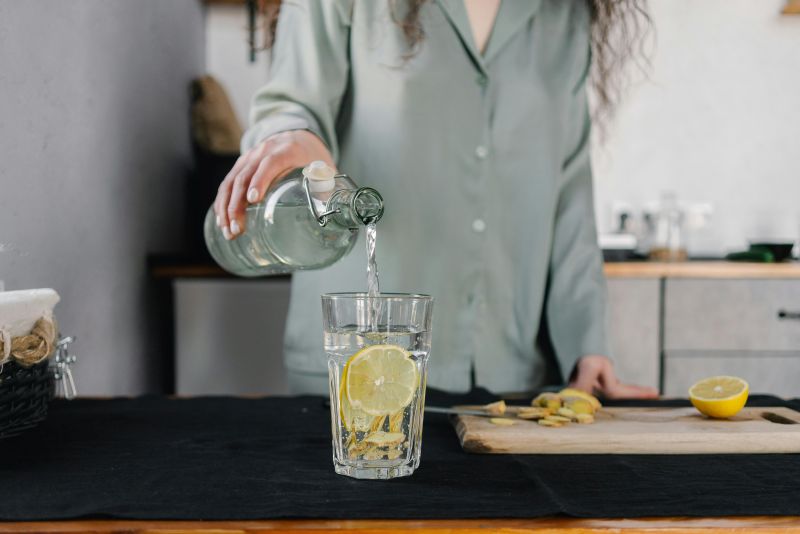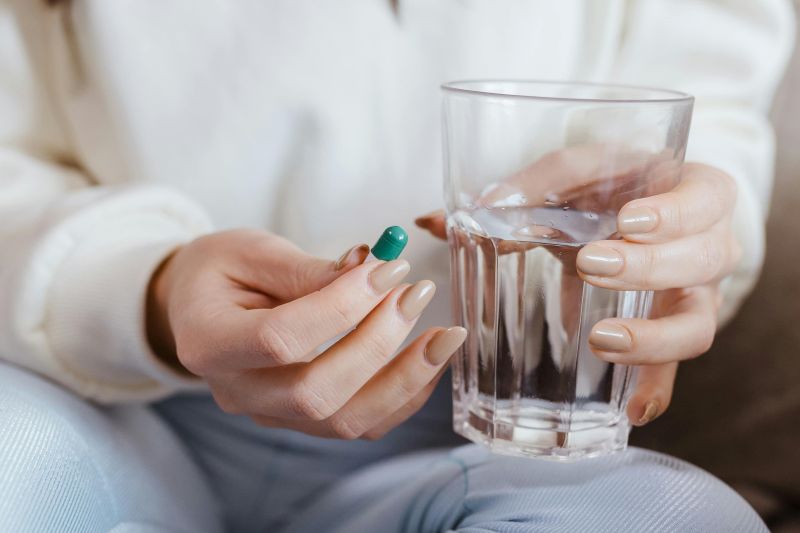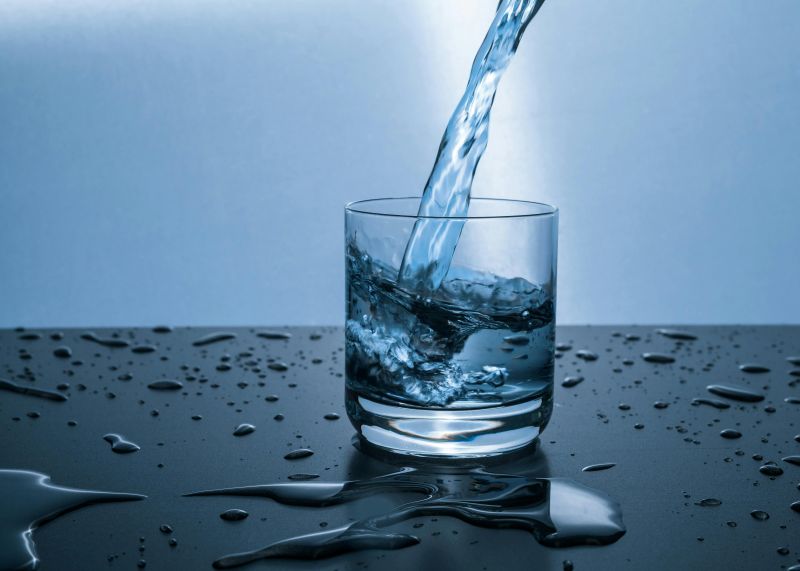You drink clean water every day—but have you ever wondered if it’s too clean? I had the same thought when I installed an RO purifier at home. At first, I felt great knowing my water was “filtered to perfection,” but then I heard some people say RO water might not be the healthiest choice. That’s when I started digging into the real question: is RO water good for health, or are we unknowingly stripping away the good stuff with the bad?
In this guide, I’ll walk you through what I’ve learned—from expert-backed facts to personal insights—so you can decide what’s right for your body, your hair, and even your plants. Whether you’re curious about why RO water is not good for health, or just wondering if it’s okay to keep drinking it daily, I’ve got you covered.
Let’s break it down together—simple, honest, and straight from experience.

What Is RO Water and How Is It Made?
Let’s keep it real—when I first heard about RO water, I had no idea what it even meant. It just sounded fancy and “clean,” right? But here’s the simple version: RO stands for Reverse Osmosis, a high-tech way to filter water. Picture this—your tap water gets pushed through a super-fine membrane that acts like a net, catching all the “bad stuff” like bacteria, chemicals, and heavy metals. What’s left is clear, purified water that looks perfect.
But here’s the twist: in the process, RO water also loses many of the good minerals—like calcium and magnesium—that your body actually needs. That’s why some people ask, “is RO water good for health or not?” Because while it’s clean, it might be too clean.
So, what is RO water used for? Mostly for drinking, but some folks also use it for cooking, watering plants, or even hair washing. (Yes, seriously—if you’ve ever Googled “is RO water good for hair wash?” you’re not alone.)
Before we dive into the pros and cons, just know this: RO water is popular for a reason, but understanding how it’s made helps you decide if it’s the right kind of clean for your health and home.
Is RO Water Good for Health? A Balanced View
So, let’s get to the big question: is RO water good for health? Honestly, it’s a bit of a mixed bag—and like most things in life, the answer isn’t black and white. RO water does a great job at removing harmful stuff like lead, arsenic, and pesticides. That alone makes it feel like a smart, safe choice. In fact, many health-conscious households (mine included!) swear by it because it tastes cleaner and gives peace of mind.
But here’s where it gets tricky: RO also removes the minerals your body actually needs, like calcium, magnesium, and potassium. That’s why some experts warn that drinking RO water long-term might not be ideal—especially if you’re not getting those minerals from food or supplements. Some even call it “dead water” because it’s too pure. So when people ask, “RO water—good or bad for health?” the answer depends on your lifestyle and what’s going into the rest of your diet.
That said, is RO water purifier good for health overall? If your regular tap water has dangerous contaminants, then yes, using an RO system can be life-changing. But it’s still worth asking: is drinking RO water harmful if we rely on it for everything, without replacing the lost minerals?
As I researched more and spoke with a few nutritionists, I realized this: balance is everything. RO water isn’t harmful by default, but it shouldn’t be your only strategy for good hydration. Think of it like a diet—it needs variety and support.
So before we jump to any conclusions, let’s weigh the concerns and dig into why some people say RO water is not good for health. Ready?
Why Some Experts Say RO Water Is Not Good for Health
Here’s where things get a little uncomfortable. After I started using an RO purifier, I genuinely felt better drinking water that tasted “pure.” But one day, a friend casually asked, “Aren’t you worried it doesn’t have any minerals?” That stopped me in my tracks. I hadn’t thought about that before. Isn’t clean water supposed to be healthy?
Well, this is why some experts say RO water is not good for health—because it’s not just filtering out the bad stuff. It’s also removing the good stuff, like calcium, magnesium, and potassium—essential minerals our bodies need for things like bone health, nerve function, and hydration. Without them, even the cleanest water may leave your body feeling… incomplete.
Some health professionals even link demineralized water with subtle long-term issues like fatigue, digestive discomfort, or electrolyte imbalance. One study by the World Health Organization noted that drinking low-mineral water over time might lead to mineral loss in the body. It’s kind of ironic, right? We turn to RO for safety, but we might end up needing supplements just to make up for what it strips away.
Another concern? The pH level of RO water tends to be slightly acidic. This can mess with your body’s natural balance, especially if your overall diet is already low in alkaline-forming foods. That’s partly why people search for things like “is alkaline RO water good for health?”—because adding minerals back can help rebalance the pH and restore that nutritional value.
Now, don’t get me wrong—I’m not saying RO water is harmful for everyone. But if you’re only drinking RO water, and your diet isn’t rich in minerals, it could make a subtle difference over time. And if you’ve ever felt a bit dehydrated even after drinking plenty of water, this might explain it. That “too clean” feeling? It’s real.
So, next time someone wonders “is drinking RO water harmful?” or “ro water—good or bad for health?” you’ll know: it’s not about fear—it’s about awareness. Clean is good, but balance is better.

Is Alkaline RO Water Better for Health?
After learning that RO water can lose essential minerals, I found myself standing in my kitchen, staring at my purifier, thinking—Should I be drinking something better? That’s when I stumbled into the world of alkaline RO water. And let me tell you—it sounded fancy at first, but the idea is actually pretty simple.
So here’s the scoop: alkaline RO water is basically reverse osmosis water that’s had minerals added back into it—usually calcium, magnesium, and potassium. These minerals help raise the pH level, making the water less acidic and more “alkaline.” That’s why people ask, “Is alkaline RO water good for health?” Because it claims to offer the best of both worlds: clean and nourishing.
Now, does this make it better for you? In many cases, yes. See, while regular RO water can be a bit flat or even slightly acidic, alkaline RO water helps balance that out. Some folks say it hydrates better and even helps with things like digestion or acid reflux. And if you’ve ever felt like plain RO water makes your mouth feel dry or your skin a little tight, this might be why.
Personally, after switching to alkaline RO water, I noticed my water tasted fresher—and I didn’t feel as sluggish after a long day. That could be placebo or just better hydration, but hey, if it works, it works.
Still, let’s keep it real: alkaline water isn’t some magic elixir. The science is still catching up, and while some studies suggest potential benefits, others say your body already does a great job managing pH levels on its own. But if your main concern is “is RO water good for health?”, and you’re worried about lost minerals or acidity, alkaline RO water can be a solid upgrade—especially if you’re not getting those minerals from food.
So here’s the bottom line: alkaline RO water is like giving your hydration a little boost of balance. It’s not essential for everyone, but it’s a great option if you want your purified water to feel a bit more alive. And for those asking “ro water—good or bad for health?”—this might just tip the scales toward the good.
What About Hair and Skin?
Okay, let’s get a little personal—because this one really caught me off guard. A few weeks after I started using RO water at home, I noticed something strange. My hair felt drier. Not just “skipped conditioner” dry, but brittle, like it had lost its bounce. And my scalp? It got itchy in a way it never had before. That’s when I thought, Wait… could it be the water?
Turns out, I wasn’t imagining things. If you’ve ever Googled “is RO water good for hair?” or “is RO water good for hair wash?”—you’re definitely not alone. While RO water is amazing at getting rid of impurities, it also strips away natural minerals like calcium and magnesium. And guess what? Those same minerals help your hair stay soft and your scalp stay balanced.
Think of your hair like a plant. It needs a little nourishment, not just “pure” water. RO water might be too clean—so clean it doesn’t support your hair’s natural moisture levels. Some people even say it dulls the shine or makes their hair frizzier. I didn’t want to believe it at first, but once I switched to using filtered—not fully RO—water for my hair rinse, things got better. Way better.
And your skin? Same deal. Mineral-free water can leave it feeling tight or dry, especially if you already have sensitive skin. That “squeaky clean” feeling? Not always a good sign. That’s why many people who ask “is RO water good for health?” are also secretly wondering about their skin’s sudden rough patches or breakouts.
Now, let’s be clear—RO water isn’t toxic or dangerous. But when you use it daily for hair washing or showers, you may start to notice these subtle effects. And they can sneak up on you. That’s one more reason why RO water—good or bad for health? is such a personal question. It’s not just what’s in the water—it’s also what’s missing.
So if your hair’s feeling a little “off” lately, or your skin’s acting up, try switching up the water you use. Maybe rinse with bottled mineral water once a week. Or, if you can, use a filter that leaves some minerals in. You’d be surprised how quickly your hair thanks you.
Is RO Water Good for Plants Too?
Okay, so we’ve talked about RO water for drinking, hair, and even skin—but what about your plants? I asked myself the same question one lazy Sunday while watering my peace lily. I had this thought: If RO water is “too clean” for people, is it also too clean for plants?
Turns out, it’s a little complicated.
Plants, just like us, need minerals. In natural water—like rainwater or untreated tap—you’ll find trace minerals like calcium, magnesium, and potassium. These help nourish the soil and support healthy root development. But RO water? It strips all that away. It’s pure H₂O, no frills. And while that sounds great for drinking, it can be a bit too “empty” for your leafy friends.
When I started using RO water on my houseplants, I noticed some of them began to look… meh. The leaves got dull, and a few even turned yellow at the edges. At first, I blamed it on sunlight or the potting mix. But after switching back to tap water (or even letting the RO water “rest” with some added nutrients), they perked right up. That’s when it clicked: RO water might actually be stressing my plants out.
So, is RO water good for plants? Not really—not by itself, anyway. If you’re using it straight from the purifier, your plants may miss out on essential nutrients. And over time, this can lead to slower growth, weak roots, or even mineral deficiencies in the soil.
If you still want to use RO water—maybe because your tap water is full of chlorine or heavy metals—there’s a workaround. Just add a plant-safe liquid fertilizer now and then, or mix RO water with rainwater or filtered tap. It gives your plants the best of both worlds: clean hydration and the minerals they crave.
So while RO water is good for health when used wisely, your plants might need a little extra love. Clean water is nice—but even your ferns want a little flavor now and then.

So, Is RO Water Good to Drink Daily?
Here’s the honest truth—when I first got my RO purifier, I thought I’d solved all my water problems. No more worrying about chlorine, heavy metals, or weird tastes. Just crisp, clean water, every time. But after a few months, I noticed something odd. I was drinking plenty of water, yet still feeling… thirsty. Like my body wasn’t really absorbing it.
That’s when I started questioning—is RO water good to drink daily, or could it actually be missing something essential?
As it turns out, RO water is kind of like a blank slate. It’s great at removing harmful contaminants, but it also strips out the good stuff—essential minerals like calcium, magnesium, and potassium. These minerals aren’t just “nice to have”—they help regulate hydration, muscle function, and even how our nerves fire. Without them, water can feel a bit empty.
So, is RO water good for health? Yes and no. It’s safe, clean, and way better than drinking tap water full of heavy metals or pesticides. But if you’re drinking only RO water every day—without getting enough minerals from your food or supplements—your body might slowly start feeling the difference. That’s why some folks say RO water—good or bad for health? It depends on what you’re pairing it with.
Here’s what helped me: I started using a remineralization filter that adds minerals back into my RO water. Some people simply squeeze a bit of lemon into their glass or add a pinch of Himalayan salt (yes, really—it works wonders). Others go a step further and switch to alkaline RO water, which raises the pH and restores the mineral balance. It’s a great upgrade if you’ve ever wondered, “is alkaline RO water good for health?” (Spoiler: it often is.)
And look—is drinking RO water harmful long-term? Probably not if your diet is rich in whole foods, leafy greens, and nuts. But if your meals are light on minerals, and you’re chugging gallons of demineralized water, it could quietly throw things off balance. I like to think of it this way: even water needs a wingman. Clean is good. Clean and nourishing? Even better.
So if you’re asking yourself, “is RO water good to drink every day?”, here’s my take: yes, but make sure you’re supporting your hydration with a well-rounded diet—or better yet, give your water a little mineral love. Your body (and energy levels) will thank you.
Final Thoughts: Should You Keep Using RO Water?
So—after all this, should you keep using RO water? Honestly, it depends on your lifestyle, your body, and how you feel. I still use my RO purifier every day, but I’ve made a few small tweaks that changed everything for the better.
At first, I thought I was doing the best thing for my health. Clean water, no chemicals, no heavy metals—what could go wrong? But over time, I noticed subtle signs: a little dryness in my skin, my hair losing its shine, and this weird feeling of thirst even after drinking plenty. That’s when I started digging deeper into the real question: is RO water good for health, or could it be lacking what my body actually needs?
The truth is, RO water is good to drink—especially if your local water supply has contaminants. It removes the bad stuff, no doubt about that. But here’s the catch: it also removes the good stuff, like calcium and magnesium. And while that might not seem like a big deal at first, over time, it can start to affect your hydration, your energy levels, and even your hair and skin. I learned that the hard way.
That’s why I now add minerals back into my water—either with a remineralization filter or a quick squeeze of lemon and a pinch of Himalayan salt. It’s a small step, but it makes a big difference. And if you’re wondering, “is alkaline RO water good for health?”, I’d say yes—it’s a great middle ground if you’re looking for hydration that feels a bit more nourishing.
If you’re seeing signs like dry skin, dull hair, or feeling tired even when you’re drinking enough water, it might be worth asking: “Is RO water purifier good for health in my case?” Maybe your body’s just craving a little more mineral support.
And let’s not forget the bigger picture—is RO water good for hair? Not always. Is RO water good for plants? Also tricky. The common theme? Balance. Even the cleanest water needs a partner—whether that’s your diet, a filter upgrade, or just listening to your body.
So no, drinking RO water isn’t harmful by default. But using it wisely—and not assuming “clean” means “complete”—is key. If you feel great and your diet’s solid, you’re probably fine. If not, a few tweaks could go a long way.
In the end, I like to think of RO water like a blank canvas. It’s up to you to add the color—whether that’s minerals, better food choices, or simply staying tuned into how your body reacts. When people ask me, “RO water—good or bad for health?”, I tell them this: it’s not about fear. It’s about awareness. And once you’ve got that, you’re already ahead.

